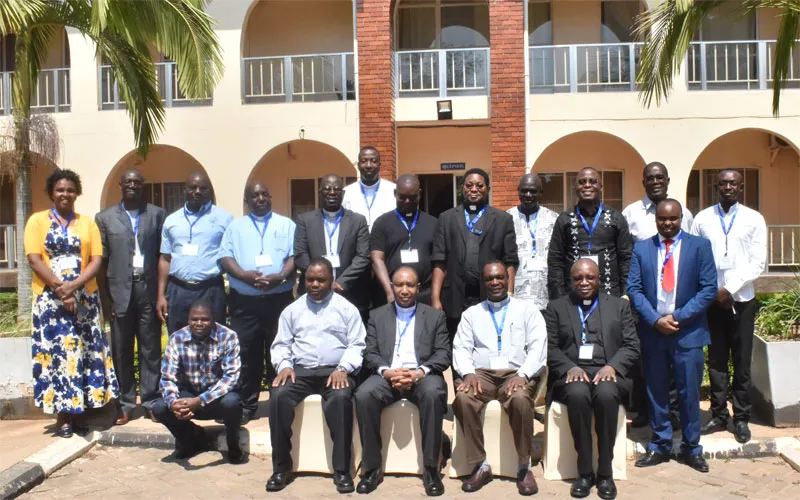Lusaka, 19 October, 2019 / 2:13 am (ACI Africa).
Against the backdrop of accusations of child abuse by clerics in a number of countries across the globe resulting in, among other declarations, an “all-out battle” against the abuse of minors by Pope Francis, the Association of Member Episcopal Conferences in Eastern Africa (AMECEA) has reached out to the Zambia Conference of Catholic Bishops (ZCCB) in a recent meeting that concluded with recommendations, which if realized, the safety of children in the landlocked Southern Africa country will be guaranteed.
AMECEA safeguarding Advisor, George Thuku shared with ACI Africa Friday, October 18 an overview of the deliberations of the meeting that was held in Zambia’s capital, Lusaka from October 10-14.
“Bishops need to organize ongoing formation workshops for priests on child safeguarding, and make such programmes mandatory,” the Lusaka meeting recommended, a guideline that will see Bishops of the various dioceses in Zambia decline to exempt priests from attending planned sessions on child safeguarding.
The Lusaka meeting, according the report availed to ACI Africa, “resolved to sensitize every clergy in Zambia on the need to safeguard all children noting that children are gifts from God to the Zambian Church.”
Considering the need to diversify safeguarding awareness beyond diocesan structures to the grassroots, the Lusaka meeting “further agreed to support the Bishops to implement safeguarding measures in all the parishes and Church ran institutions as envisioned in the Zambian Conference of Catholic Bishops Policy on Child Safeguarding.”








